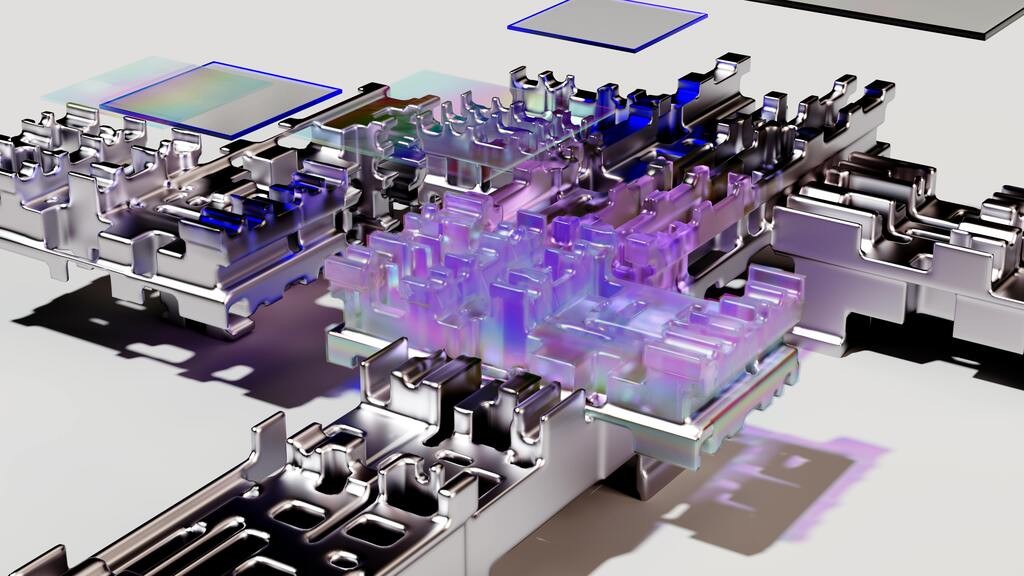In recent years, there has been a significant advancement in the field of Artificial Intelligence (AI) and Augmented Reality (AR). These technologies have become increasingly popular and have the potential to enhance virtual experiences in various fields such as gaming, education, healthcare, and...
Advances in AI Chip Design — Specialized Hardware Accelerates Neural Networks

Artificial Intelligence (AI) has become a prominent field of research and development in recent years. With the ability to process and analyze vast amounts of data, AI has the potential to revolutionize various industries. One of the key components driving the progress of AI is the design of specialized hardware that can accelerate neural networks.
Neural networks are at the core of AI algorithms, mimicking the behavior of the human brain to process and learn from data. However, the computational demands of training and running neural networks are immense, requiring significant processing power and energy consumption. This is where AI chip design plays a crucial role.
Advances in AI chip design have led to the development of specialized hardware that can perform complex computations required by neural networks more efficiently. These chips are designed to optimize the processing of matrix multiplications, which are fundamental operations in neural network calculations.
By offloading these computations to specialized hardware, AI chip design enables neural networks to run faster and more power-efficiently. This not only improves the performance of AI applications but also reduces the energy consumption, making AI more sustainable and accessible.
Advances in AI Chip Design
The field of artificial intelligence has seen rapid progress in recent years, thanks in large part to advances in AI chip design. These specialized hardware accelerators have revolutionized the way neural networks are trained and deployed, enabling faster and more efficient processing of complex data.
One of the key challenges in AI chip design is optimizing performance while minimizing power consumption. Traditional general-purpose processors are often not well-suited for the demands of AI workloads, which require massive parallelism and high memory bandwidth. As a result, designers have turned to specialized architectures that are tailored specifically for AI tasks.
One such architecture is the graphics processing unit (GPU), which was originally developed for rendering graphics in video games but has since found use in AI applications. GPUs excel at parallel processing, making them well-suited for training and running neural networks. Companies like NVIDIA have developed GPUs with thousands of cores, allowing for the simultaneous execution of many computational tasks.
Another promising approach to AI chip design is the use of application-specific integrated circuits (ASICs). These chips are designed from the ground up to perform a specific set of tasks, resulting in highly efficient and optimized performance. ASICs can be tailored to the specific needs of neural network algorithms, enabling even greater speed and power efficiency compared to general-purpose processors.
In addition to GPUs and ASICs, there are also specialized AI chips being developed that leverage other technologies like field-programmable gate arrays (FPGAs) and tensor processing units (TPUs). These chips offer unique advantages in terms of flexibility and performance, depending on the specific requirements of the AI workload.
Overall, the advances in AI chip design have been instrumental in driving the progress of artificial intelligence. These specialized hardware accelerators have enabled researchers and developers to train larger and more complex neural networks, leading to breakthroughs in areas such as computer vision, natural language processing, and autonomous systems. As AI continues to evolve, so too will the field of AI chip design, with new architectures and technologies being developed to push the boundaries of what is possible.

Specialized Hardware Accelerates Neural Networks
Neural networks have become an essential tool in the field of artificial intelligence, enabling machines to learn and make decisions in a way that mimics the human brain. However, the computational demands of training and running neural networks can be immense, requiring significant processing power and energy consumption. To address these challenges, researchers and engineers have been developing specialized hardware accelerators designed specifically for neural network computations.
The Need for Specialized Hardware
Traditional general-purpose processors, such as CPUs and GPUs, are not well-suited for the highly parallel nature of neural network computations. While these processors can handle basic operations, such as matrix multiplications, they are not optimized for the complex calculations required by neural networks. As a result, running neural networks on traditional processors can be slow and inefficient.
Specialized hardware accelerators, on the other hand, are designed with the specific requirements of neural networks in mind. These accelerators are optimized for parallel processing and can perform the complex calculations required by neural networks much faster and more efficiently than general-purpose processors. This allows for faster training and inference times, as well as reduced energy consumption.
Types of Specialized Hardware Accelerators
There are several types of specialized hardware accelerators that have been developed for neural network computations. One example is the field-programmable gate array (FPGA), which can be reconfigured to perform specific computations and is highly parallelizable. Another example is the application-specific integrated circuit (ASIC), which is designed specifically for a particular application or task, such as deep learning.
More recently, there has been a growing interest in using graphical processing units (GPUs) as hardware accelerators for neural networks. GPUs are well-suited for parallel processing and can handle large amounts of data simultaneously, making them ideal for neural network computations.
Overall, the development of specialized hardware accelerators has greatly advanced the field of artificial intelligence by enabling faster and more efficient neural network computations. As researchers continue to innovate in this area, we can expect even more powerful and specialized hardware accelerators to emerge, further pushing the boundaries of AI.



